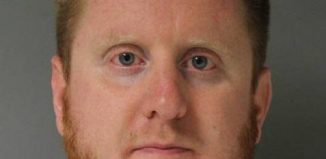As summer nears, new SCWA chair asks residents to conserve water
The SCWA Board is exploring a third billing tier targeting excessive water consumption

By Raymond Janis & Aidan Johnson
As the county enters the hottest and driest months of the year, the Suffolk County Water Authority is urging residents to take preemptive measures to help mitigate potential water shortages.
Last month, commercial real estate developer, Three Village Chamber of Commerce president and former Town of Brookhaven Councilman Charlie Lefkowitz, a Setauket resident, took the helm of the SCWA Board. He takes the reins of the public benefit corporation at a critical juncture in its history.
The National Oceanic and Atmospheric Administration tracked record lows in rainfall throughout the region in 2022, with the county experiencing its sixth driest July on record.
In an exclusive interview, the newly installed SCWA chair maintained that while clean water is essential, the county is facing growing water quality and quantity issues. And with summer weather approaching, he said the water authority’s existing infrastructure would also be feeling the heat.
“Being on the board for the last year, I got some really good insight on how important protecting our groundwater and the constitutional right of everyone in Suffolk County to have clean drinking water,” he said.
Lefkowitz described the county’s water situation as being “very unique,” as it’s one of the largest water districts with a sole-source aquifer, whereby ratepayers receive 100% of their water from the ground.
“We have 1.2 million customers,” he said. “Eighty-five percent of the residents of Suffolk are customers of Suffolk County Water,” adding that the rest primarily rely upon private wells or smaller water districts.
But in some areas, notably along the East End, prolonged droughts coupled with heavy water consumption can put an undue strain on SCWA’s infrastructure.
“The East End and the North Fork get very stressed this time of year,” he said. “When you have pristine lawns, gardening, pools, waterfalls and multiple geothermal” air-conditioning units, the excess strain on SCWA’s pumps can become severe, creating water shortages in some areas of the county.
To counteract these trends, Lefkowitz stressed the need for residents systemwide to limit their water use.
SCWA’s existing billing schematic is two-tiered, placing an upcharge upon customers who exceed 75,000 gallons in a single billing cycle. Given the severity of water quantity challenges as of late, Lefkowitz said the SCWA board is now exploring creating a third tier.
“This is for excessive use of water,” he said. “When you look at someone who has a single-family home of 20-40,000 square feet, but they’re using millions of gallons of water, we have to really look at” disincentivizing overconsumption of water.
Lefkowitz said he is often asked why he promotes water conservation, as the initiative could likely diminish revenues. Given the environmental and financial realities, he maintained the environmental pluses still outweigh the economic minuses.
“We’re in that season now,” he said. “At the end of the day, water conservation is really important.”






